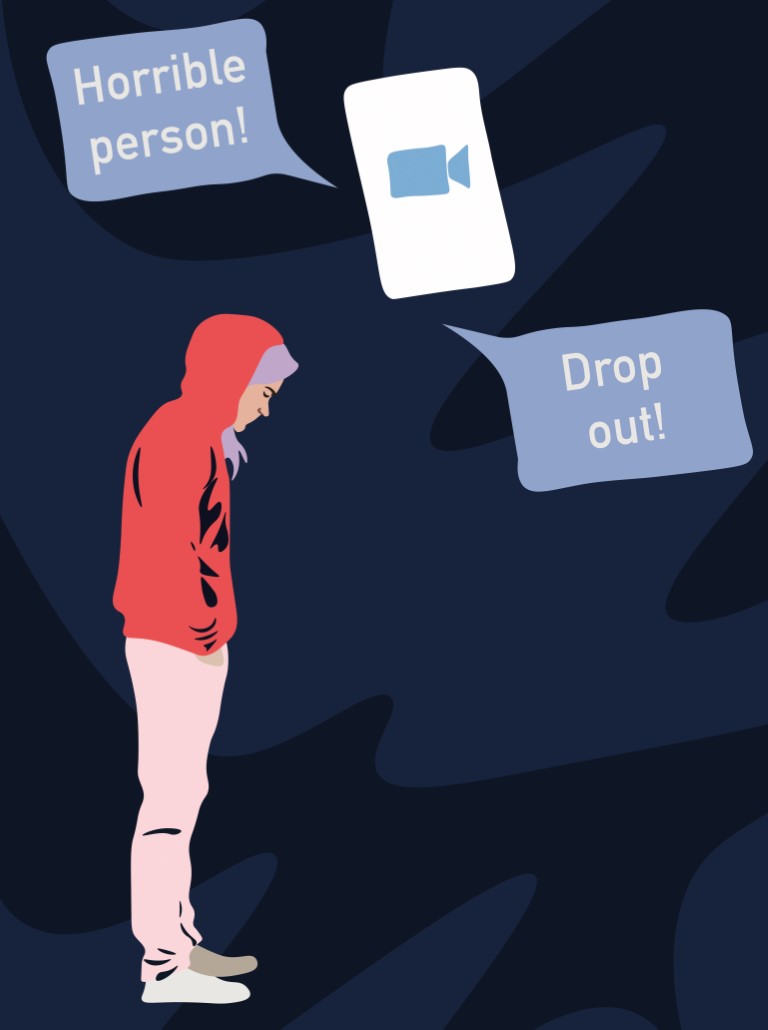
Mob justice wins again
in the case Mimi Groves
By Matthew Fraser, Opinions Editor
With the power of the internet and social media mob mentality, a video as short as three seconds can ruin your post-secondary trajectory.
The world is moving forwards in leaps and bounds; things that were forgivable before are no longer acceptable. Simultaneously, there are things that many argue were never acceptable—and we are willing to harshly punish transgressors for their crime. Chief among those things has been the use of the n-word. Use of the expletive outside of the black community is almost universally frowned upon and has been the end of many a career; the infamous Michael Richards rant effectively ended the Seinfeld star’s time in the spotlight and pushed him into obscurity. But now, with the power of the internet and social media mob mentality, a video as short as three seconds can ruin your post-secondary trajectory.
In 2016, Mimi Groves sent out a Snapchat video in which she said: “I can drive, n***a.” Jimmy Galligan received the video through a friend and chose to hold on to it until an opportune time emerged. That day came in 2020 when Groves was accepted into the University of Tennessee, Knoxville where she hoped to fulfill her dream of being a cheerleader representing the school; Galligan took this opportunity and released the video via social media during the unrest surrounding the killing of George Floyd. I’m sure anyone who was not previously aware of this situation can imagine the immediate anger this video generated. And, in no time at all, the social media machine metastasized and pressured the university to council Groves to dropout.
Galligan alleges that throughout his school life, teachers and administrators had repeatedly turned a blind eye to the reported use of the slur that happened in his school. Provided that this is true, I am not surprised that a teenager would want to take matters into their own hands and exact punishment in whatever nonviolent way they could. Yet, we cannot pretend as if Groves should permanently bear the weight of a mistake made when she was 16 years old. I think Groves should have known better than to say what she said, and I have enough memories of my own from high school to understand the impact of these words, but no one is 16 forever, and the things you did with your unformed teenage brain should not irreversibly dictate your future if you have learned from your mistakes.
Which brings me to the two main failures of this story: the adults who turned a blind eye, and the adults who caved to the social media and alumni pressure.
I think the adults in the Loudon school district (one of the last school districts to desegregate) failed students both white and black when they turned a blind eye to the reported slur usage in their halls. Other writers have spoken about the way racism waits under the surface in Virginia, but time has run out and it’s mainly youth who are hurt by it now. There are likely countless other students who experienced the day-to-day degradation that Jimmy Galligan faced, or who casually laughed at the words that caused the abasement just as Mimi Groves did—but the cavalier acceptance of the adults built the resentment that motivated Galligan. I don’t think he aimed to permanently ruin her life, nor do I think that he understands how much this decision may have cost both of them, but this is a story of two youths whom adults allowed to fail.
But I wouldn’t be writing this if we didn’t live in a world where social media facilitates mob justice and the admissions office of the University of Tennessee cared more about their Twitter page than the severity of punishment. The failure of adults to say “stupid moments at 16 don’t require permanent punishment” catapulted this story to its current heights; it is in the best interest of us all that mob justice becomes unacceptable—whether in real life or online. Though I certainly believe that there was a lesson Groves needed to learn, forcing a university to expel her by dog piling its social media only legitimizes what will soon grow to be modernity’s most acceptable variation of lynching.
What Jimmy Galligan endured as he made his way through school was wrong, but it does not permit the vengeance he exacted. Though Mimi Groves has accepted a punishment disproportionate to her actions, we cannot pretend as if her actions did not warrant a reprimand and that those who should have delivered, failed in their duties. Still, the way we have accepted this internet driven injustice should be disturbing to everyone who made mistakes growing up.

